Ditch Stressful Houseplants! Well… Just a couple!
Houseplants should bring joy and calmness to your life, not stress and frustration. If you don’t enjoy your houseplants, they aren’t helping you, and you certainly won’t take the best care of them. As the fall season approaches, balancing your commitments and work becomes crucial, making it important to set yourself up for success during this time, so ditch stressful houseplants!
A particularly difficult houseplant shouldn’t be the one thing that stresses you out so much that you forget to finish that paper, go grocery shopping, or do the laundry! Houseplants should support your lifestyle, offering a haven of calm to your day and peace to your environment.
For me, this realization has been SO important. I’ve had to learn that if a plant is more trouble than it’s worth, it’s okay to let it go. This doesn’t mean you’re a bad plant parent; it means you’re prioritizing your mental health. By keeping only the houseplants that truly bring joy, you can maintain a happy and healthy indoor environment that complements your busy lifestyle. Let’s explore how to let go of those troublesome houseplants and keep indoor gardening a pleasant hobby.
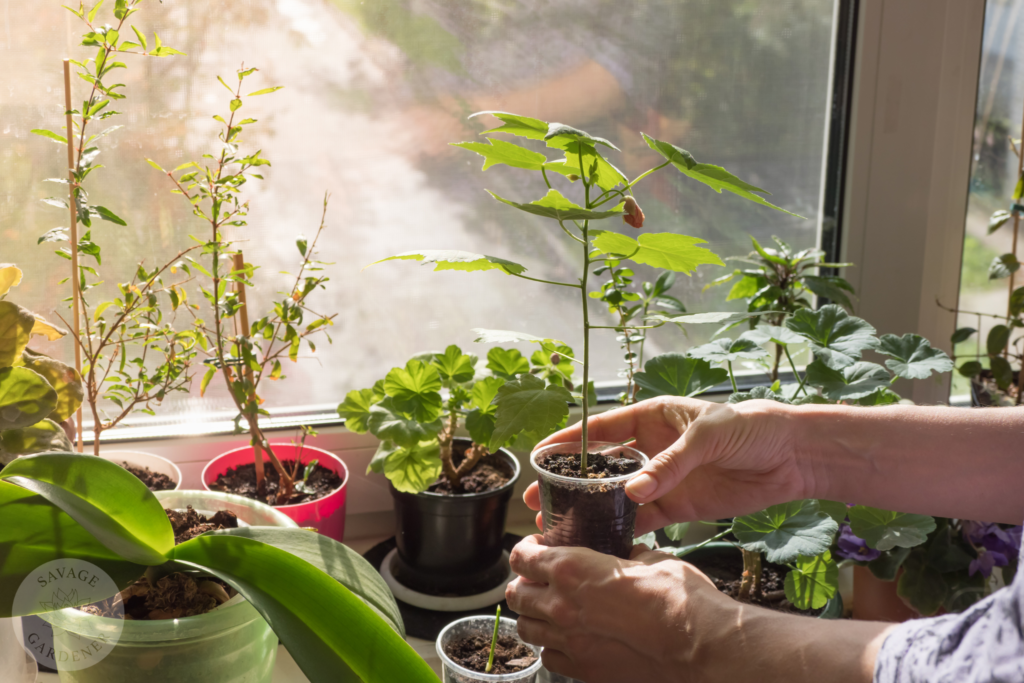
The Joy of Houseplants
Houseplants have numerous benefits that go beyond their aesthetic appeal. They can help reduce stress and improve your home’s air quality. For me, taking the time to slow down and be with my houseplants is vital for my mental health. Without them, it would be “go, go, go” all the time. I started keeping houseplants as a small hobby when I went to university, but over time, I noticed these benefits and fell absolutely in love.
Houseplants have calmed me down and helped me feel connected to people. Sharing the beauty of a leaf online is one thing, but meeting another blogger in your city who shares your name (Hi Bri! https://www.urbangardeningcanada.com/ ) and has a few other things in common is so cool! Now I have met someone online who shares interests with me, and whose posts I look forward to seeing.
Creating a community is so important because, without talking to others, it is hard to learn—just like the importance of a seminar class at university! You’re all part of my gardening cohort, even if you’re the quiet person sitting at the back of the class. Houseplants have provided me with a sense of community and joy, making my indoor gardening experience truly enriching.
Recognizing the Signs of Stress and Overwhelm
Houseplants should be a source of joy, not stress. If you find yourself procrastinating on watering, repotting, or pruning your houseplants, that can be a sure sign they are stressing you out. This only makes it worse, as the plants’ needs pile up and your to-do list grows longer. This is why it is so important to ditch stressful houseplants, so they don’t overwhelm you!
It’s important to differentiate between normal plant care challenges and overwhelming stressors. Everyone gets upset when a leaf dies or a plant seems to be struggling, but that’s not the same as a plant stressing you out so much that you avoid taking care of it and letting it upset you. For instance, I once had a mini donkey’s tail plant (I don’t remember the official name, but this is what I call it) that I hated because it dried out so quickly, and the little leaves were always falling. Eventually, I just got rid of it because I had no love for it. I refused to feel guilty about it, and it made me feel better!
Recognizing these signs is crucial for maintaining your mental health. If a plant is more trouble than it’s worth, it’s okay to let it go. Houseplants should enhance your life, not complicate it. By identifying and addressing the stressors, you can focus on the plants that truly bring you joy and maintain a healthy, happy indoor garden.
Assessing Your Plant Collection
Evaluating your plant collection is the first step toward reducing stress and keeping houseplants enjoyable. Start by taking your time and handling one plant a day. Pay attention to how you feel when you care for each plant. Do you enjoy the process, or does it feel like a chore?
When assessing your plants, consider the following criteria for deciding which to keep and which to let go:
- Health and Maintenance Needs: Some plants require more attention and care than others. If you’ve been trying for a month and just cannot find a rhythm with a plant, it might be time to let it go.
- Personal Attachment: How much do you love the plant? If a plant doesn’t bring you joy, it’s okay to part ways. Remember, houseplants should be a source of happiness, not stress.
- Space and Light Requirements: Consider whether you have the right environment for each plant. If a plant isn’t thriving due to space or light constraints, it might be best to find it a new home.
- Compatibility with Lifestyle: Your plants should fit seamlessly into your lifestyle. If a plant’s needs are too demanding for your schedule, it’s okay to let it go.
Once you’ve evaluated your collection, decide what to do with the plants that don’t make the cut. You can throw them out, or better yet, see if someone else wants them. This could be an opportunity to make a new friend or strengthen your community ties.
By thoughtfully assessing your plant collection, you can create a more manageable and enjoyable indoor garden. This will ensure that your houseplants remain a source of joy and peace in your life.
The Emotional Aspect of Letting Go
Letting go of houseplants can be emotionally challenging. It might feel like you’ve failed at something you’re supposed to be good at or that others seem to do with ease. However, it’s important to remember that everyone’s journey with houseplants is unique, and it’s okay to make changes that benefit your mental health.
The feelings of guilt or sadness when parting with a plant are natural. To cope with these emotions, focus on the plants you do love and the joy and peace they create for you. Remember that you’re prioritizing your well-being, and that’s what matters most.
Another way to ease the emotional burden is to think about the positive impact your decision will have on your remaining plants. By letting go of the troublesome ones, you can give more attention and care to the plants that truly bring you joy. This will create a healthier and happier indoor environment.
If you’re struggling with feelings of guilt or overwhelmed, remind yourself to reach out to those around you. Talk to fellow plant enthusiasts or join online plant communities for support and encouragement. Sharing your experiences and hearing others’ stories can be comforting and help you realize you’re not alone – and may help you fall in love with indoor gardening all over again!
Ultimately, letting go of houseplants that cause stress is a step toward maintaining a happy and healthy indoor garden. By focusing on the plants that bring you joy, you can ensure that your houseplant hobby remains a source of relaxation and fulfillment.
Find New Homes to Ditch Stressful Houseplants
Rehoming your plants is a great way to ensure they continue to thrive while alleviating your own stress. There are several ways to find new homes for your plants, such as giving them to friends, family, or local plant groups.
One of the benefits of rehoming plants is knowing they will be well cared for. If you want your plant to succeed, sometimes giving it away is best for it, and it can reduce the guilt of getting rid of a plant. Additionally, rehoming plants can strengthen your relationships and community ties. Sharing your plants with others who appreciate them can create meaningful connections.
Local plant groups and social media platforms are excellent resources for finding new homes for your plants. Many communities have plant swap events or online groups where you can connect with fellow plant enthusiasts. These groups are often welcoming and supportive, making the process of rehoming your plants easier and more enjoyable.
When rehoming your plants, be sure to provide care instructions to the new owner. This will help ensure the plant continues to thrive in its new environment. Additionally, consider checking in with the new owner periodically to see how the plant is doing. This can provide a sense of closure and reassurance that your plant is in good hands.
Rehoming your plants allows you to focus on the ones that bring you joy and reduce the stress of managing a large collection. It’s a positive step toward maintaining a happy and healthy indoor garden.
Simplifying Your Plant Care Routine
Simplifying your plant care routine can make managing your indoor houseplants more manageable and enjoyable. Here are some tips to streamline your plant care routine:
- Create a Schedule: Establish a regular watering and maintenance schedule that fits your lifestyle. Use reminders or a plant care app to help you stay on track.
- Group Plants with Similar Needs: Organize your plants based on their watering and light requirements. This will make it easier to care for them efficiently.
- Automate Lighting: Invest in timers for your grow lights to ensure your plants receive the right amount of light each day without manual adjustments.
- Delegate Tasks: If you live with others, consider sharing plant care responsibilities. This can help distribute the workload and ensure your plants are well cared for.
For those looking for low-maintenance houseplants that thrive with less attention, consider these options:
- Snake Plant: Also known as Sansevieria, snake plants are incredibly hardy and can tolerate low light and infrequent watering.
- Pothos: Pothos are versatile and can thrive in a variety of light conditions. They are also forgiving if you forget to water them occasionally.
- Spider Plant: Spider plants are easy to care for and can adapt to different environments. They also produce offshoots, making them great for propagation.
By incorporating these tips and choosing low-maintenance plants, you can simplify your plant care routine and reduce the stress of managing your indoor garden. This will allow you to enjoy the benefits of houseplants without feeling overwhelmed.
Creating a Stress-Free Plant Environment
Creating a stress-free plant environment involves setting up a care routine that fits your schedule and organizing your plant space for ease and efficiency. Here are some tips to help you achieve this:
- Set a Routine: Develop a consistent plant care routine that aligns with your daily schedule. This could involve setting aside specific times each week for watering, pruning, and other maintenance tasks.
- Organize Your Space: Arrange your plants in a way that makes them easy to access and care for. Use shelves, plant stands, or hanging planters to maximize space and keep your plants organized.
- Keep Tools Handy: Store your plant care tools, such as watering cans, pruning shears, and fertilizers, in a convenient location. This will make it easier to maintain your plants without having to search for supplies.
- Create a Relaxing Atmosphere: Design your plant space to be a calming and enjoyable environment. Add comfortable seating, soft lighting, and decorative elements to make it a place where you want to spend time.
By implementing these tips, you can create a stress-free plant environment that supports your mental health and allows you to enjoy the benefits of indoor houseplants. A well-organized and efficient plant care routine will help you maintain a healthy and happy indoor garden without feeling overwhelmed.
The Benefits of a Smaller, Well-Curated Collection
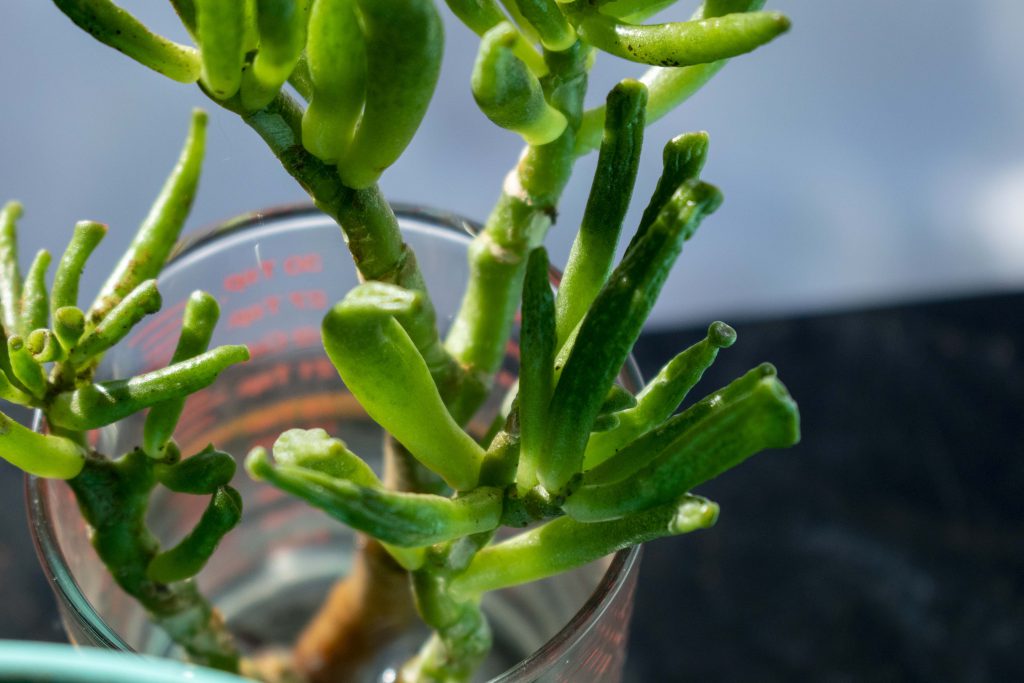
Having a smaller, well-curated collection of houseplants offers several advantages. A more manageable plant collection allows you to give each plant the attention it needs, resulting in healthier and happier plants.
One of the main benefits of a smaller collection is reduced stress. With fewer plants to care for, you can focus on enjoying the process rather than feeling overwhelmed by the demands of a large collection. This can improve your mental health and overall well-being.
Another advantage is the ability to create a more cohesive and aesthetically pleasing plant display. A smaller collection allows you to be more intentional with your plant choices, ensuring they complement each other and fit seamlessly into your home decor.
From personal experience, reducing my plant count at times has significantly improved my well-being. I used to feel overwhelmed by the sheer number of plants I had to care for. By downsizing my collection, I now have more time and energy to devote to the plants I truly love. This has made my indoor gardening experience more enjoyable and fulfilling.
A smaller, well-curated collection of houseplants can bring you joy and relaxation without the added stress of managing a large number of plants. By focusing on quality over quantity, you can create a beautiful and harmonious indoor garden that supports your mental health and well-being.
Will You Ditch Stressful Houseplants?
In summary, letting go of houseplants that are too much trouble or causing you stress is essential for maintaining a happy and healthy indoor garden. By recognizing the signs of stress, assessing your plant collection, and simplifying your plant care routine, you can ensure that your houseplant hobby remains enjoyable and manageable.
Remember, it’s okay to part with plants that don’t bring you joy. Focus on the plants that enhance your life and support your mental health. Rehoming plants can also provide a sense of relief and strengthen your connections with others.
By creating a stress-free plant environment and curating a smaller, more manageable collection, you can enjoy the many benefits of houseplants without feeling overwhelmed. Prioritize your well-being and keep houseplant care enjoyable. What plants might you part with?
Discover more from Savage Gardener
Subscribe to get the latest posts sent to your email.

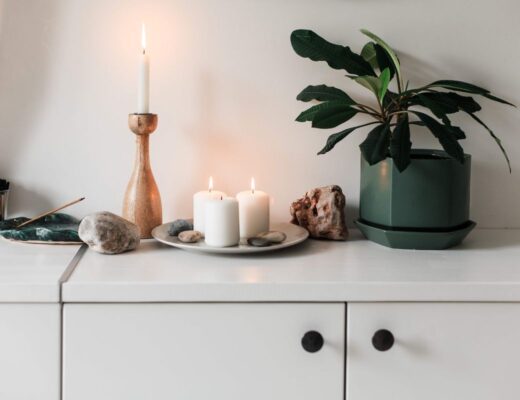

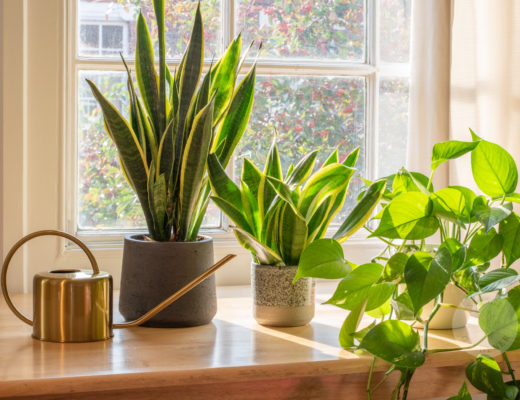
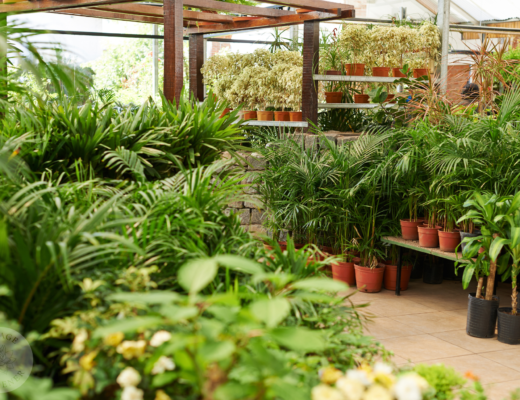
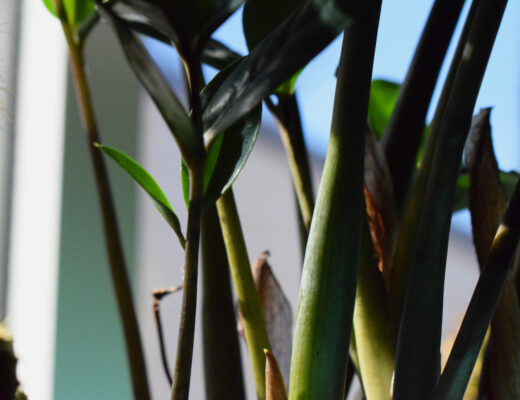
2 Comments
Dorothy
August 6, 2024 at 10:48 amA good approach to practically everything in your life!
Brianna Rockett
August 7, 2024 at 6:49 pmhahaha thank you!